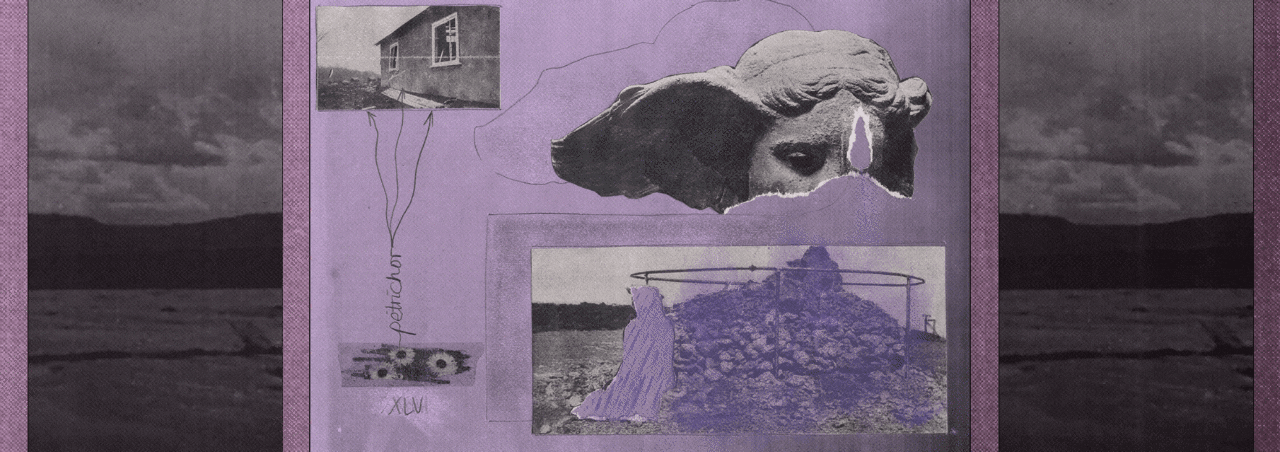For years, I’ve imagined myself writing the words / I was born
at the bottom of an ancient ocean. Read “on the floor.” For
ocean, sea.
“this shifting mass,” Etel Adnan calls it, “that
has neither beginning nor end.” / This
shifts, can mean anything: a nervous gesture made with the hands,
maybe, or the place you learned to read a map. There’s
no sea here
not now. At night, it felt like I could feel / the mountains
growing. In the morning, the sun
warms the Central Valley floor, which heats
the air just above it begins to rise. Picture a hand holding a
feather / over a radiator and letting it fall
towards the ceiling. As it rises, the air cools until it reaches
the temperature of the air that surrounds it.
I understood it
as a chain of cursive ells linked together, turned on its side,
but it’s more like the air turns itself inside out from below. A
diagram showing water boiling. The verb to kettle can refer to
vultures overhead, corkscrewing up the sky in groups, police
penning protesters in. Someone told me / they find
the convection currents / they climb by smell.
A handful of earth from what is now Sharktooth Hill, William Blake
writes, emits
an argillaceous odor when breathed upon / “readily
distinguished by the peculiar odor / which it emits
when breathed on.” Next to the definition in the Century
Dictionary: a picture of something called a “paper-sailor,”
a surface-dwelling octopus once believed to hold its many arms
aloft “erect as sails / and thereby
to be wafted by the winds.” / In the soil
can be found fine threads that break apart into tiny spores.
The notes of the wild birds / in strange contrast with
rattling wind over the dried weeds and gravel
“They readily become airborne.”
Once inside the lungs, “they be-
come round” “they enlarge and develop internal particles, endo-
spores”
that spread to the bones and destroy them. I imagined mushrooms
sprouting in the spongier parts, splintering shins, a bird bursting
forth from an egg, a flurry of feathers.
A 1977 windstorm—
“visible from space,” they say—carried dust and spores from
here as far as San Francisco. People called it “soil-breaking
fever” once. In the 1940s, they covered the fields where
airmen trained in crude oil to keep the spores from getting loose.
and it was found that the ground broke readily
days / beyond the sight of green grass
the soil extremely light and dusty / also
completely undermined in all directions
(rabbits and squirrels)
the feet of my mule continually breaking through
The animals often sank suddenly up to their shoulders
skeletons of cattle that have sunk
in the deep, thick mud,
left to die of starvation
their whitened bones / like posts around a grave
“August 24-29, 2020 comes out of a sustained exploration of Sharktooth Hill, a fossil bed and dig site outside of Bakersfield, California. Italicized phrases and lines in the poem come from the writings of geologist William Phipps Blake, who was sent to California by the U.S. War Department to survey potential routes for the proposed Transcontinental Railroad.”
Nathan Austin is the author of An in E’er (Hiding Press, 2021) and in Very Variant (Greying Ghost, 2022). Recent work can be found in Babel Tower Notice Board, P-QUEUE, Permeable Barrier, and Afternoon Visitor. He lives in Los Angeles. INSTA
NEXT >
< BACK
INDEX
